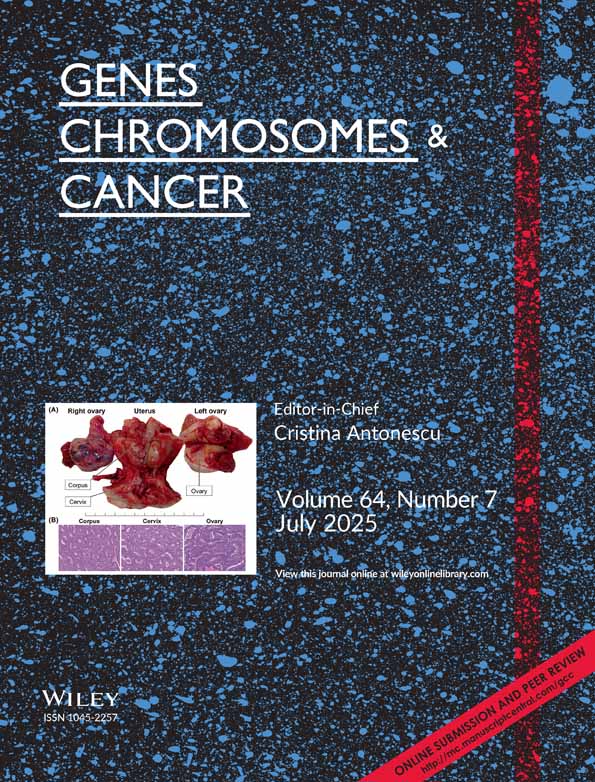Sex chromosomes in a series of 79 colorectal cancers: Replication pattern, numerical, and structural changes
Abstract
The cytogenetic study of a series of 79 colorectal cancers was performed with special attention to sex chromosome behavior. It was found that apart from other chromosomal changes, the early-replicating X chromosome (Xe) was frequently duplicated in tumors from both males and females. This contrasted with a frequent loss of either the late-replicating X (XI) in tumors from females or of the Y chromosome in tumors from males. All the detected unbalanced rearrangements resulted in a gain of the long, but not the short, arm of the X chromosome. The replication pattern of Xe chromosomes was similar to that of control tissues, whereas that of XI chromosomes was unusual. Its main characteristic was that the two major R bands of the short arm, Xp11 and Xp22, replicated too early.




